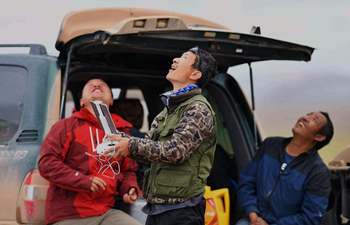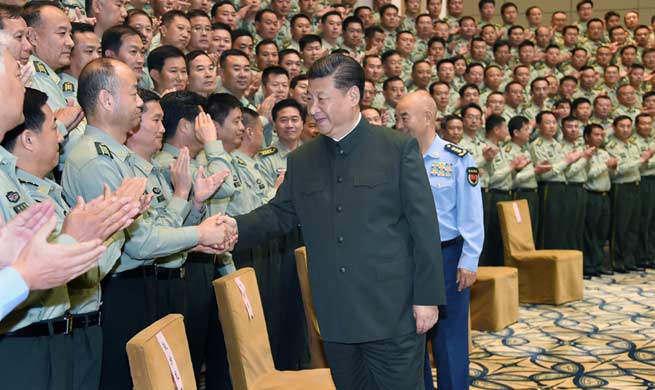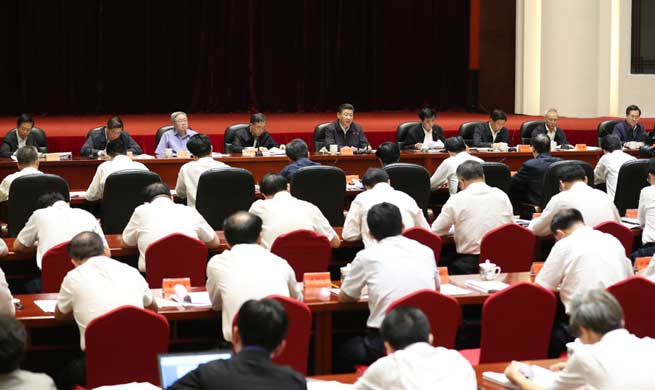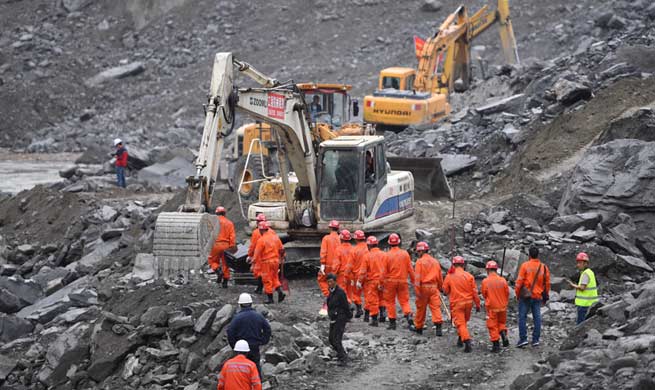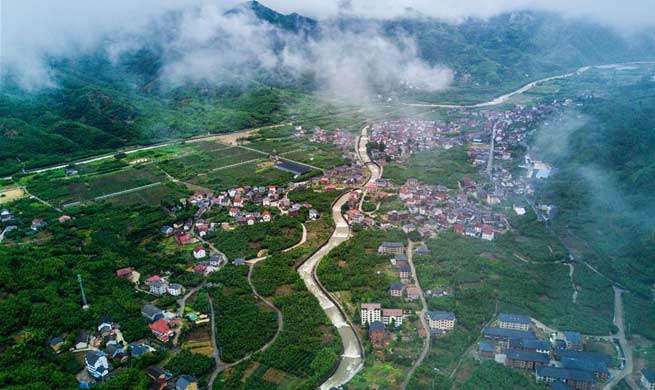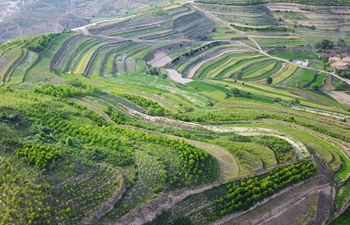by Hummam Sheikh Ali
DAMASCUS, June 24 (Xinhua) -- The U.S.-Russian relations have witnessed another round of rising tension as both stepped up support to the rivaling sides in Syria, a Syrian politician told Xinhua in an exclusive interview on Saturday.
Anas Joudeh, the head of the opposition Nation Building Movement, said the U.S. and Russia have long been at odds, including in the battlefields of the Syrian crisis, where Russia is backing the Syrian government forces, and the U.S. is behind the Kurdish-led Syrian Democratic Forces (SDF).
Both sides are in a declared fight against the Islamic State (IS), which is said to be facing its demise under the heavy blows of the powers.
The Russian-backed Syrian army is making progress against IS in the sprawling Syrian Desert, in an operation aiming to end the presence of IS and other rebel groups on the Syrian-Iraqi borders, and along the Jordanian frontier as well.
They have captured thousands of square kilometers in the Syrian Desert, succeeding to control border points with Iraq and Jordan in an operation dubbed "the Great Dawn."
The army also captured key gas and oil fields near the ancient city of Palmyra, in the desert in central Syria.
Meanwhile, the U.S.-supported SDF, a group of Arab, Kurdish and Assyrian fighters, declared a fully-fledged war on IS capital of Raqqa city in northern Syria two weeks ago, succeeding to capture several areas in the eastern and western parts of Raqqa.
They have also captured the southern bank of the Euphrates River, managing thus to circle the entire city of Raqqa.
Washington deems SDF as reliable allies, as they are not driven by religious motives like other rebel groups.
Despite the fact that both are separately fighting IS militants, their supposed common enemy, instances happened when they had come face to face, Joudeh noted.
In a recent statement, the SDF charged the Syrian army of attacking its positions in Raqqa repeatedly, warning that it will use its right of self-defense against any future attacks by the Syrian army.
The U.S.-led coalition has also brought down a Syrian warplane, accusing it of firing against the SDF, a claim totally denied by the Syrian army, which said it is given legitimate right to fight terrorism whenever and wherever located on Syrian soil.
Experts said that the U.S. is trying to keep the Syrian army away from areas Washington and its allies deem of interest, particularly in the desert close to the Iraqi borders.
"Even when the IS is defeated, the conflict between both powers will continue. Both parties are trying to draw red lines or agreements for each other, in terms of making their interests and goals clear in this country for the post-IS time," Joudeh said.
He added that "fighting terrorism" is just a title, under which, plans to secure further interests are hiding.
"The actual power and strength of IS ... won't largely exceeds the power of any other armed group in Syria, but the banner of fighting terrorism is being used by those who will invest in the post IS era, in terms of who will have control and sway in certain areas after the IS defeat," he said.
Each power fighting IS will control the areas it takes from the falling terror group, but it won't be the end of the conflict, Joudeh noted.





